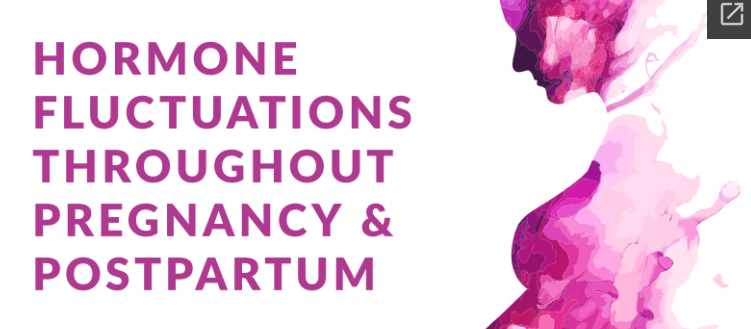Pregnancy brings about dramatic hormonal shifts, beginning with conception and continuing through childbirth. Hormones like estrogen, progesterone, and human chorionic gonadotropin (hCG) surge to support the fetus’s growth, prepare the body for delivery and ensure both mother and baby’s well-being. These hormonal changes orchestrate critical physiological adjustments, including the expansion of the uterus and the formation of the placenta.
Postpartum, the body faces a new hormonal transition as it shifts from pregnancy back to its pre-pregnancy state. The steep decline in pregnancy hormones, combined with rising levels of prolactin and oxytocin, can significantly affect a new mother’s physical and emotional health. Understanding these fluctuations helps in identifying and managing potential challenges, such as mood swings, fatigue, and postpartum
Infographic provided by International Surrogacy Center, a top company to help become a surrogate


